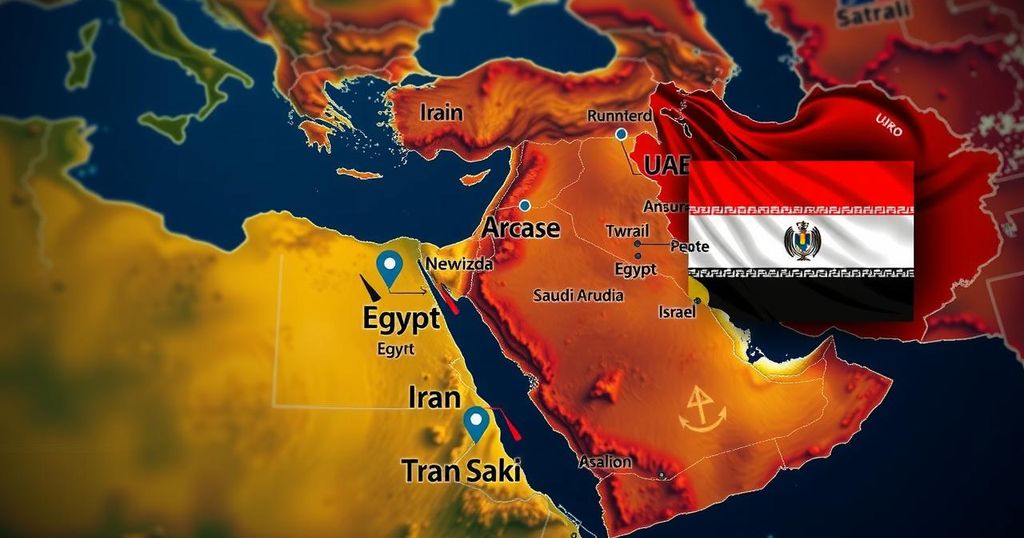Amid increasing tension over Iran, Saudi Arabia, the UAE, and Egypt have responded to Israel’s military actions with measured tones, reflecting a possible shift toward strategic alignment. Their statements emphasize regional security over direct condemnation of Israel, suggesting a growing recognition of mutual interests in curbing Iranian influence and fostering stability.
In the complex landscape of Middle Eastern politics, recent reactions from Saudi Arabia, the United Arab Emirates (UAE), and Egypt to Israel’s military actions against Iran reveal a significant shift in regional alliances. Rather than resorting to the customary denouncements typically directed toward Israel, these nations have adopted a notably measured and subdued tone, hinting at a potential realignment of their strategic priorities. The UAE exemplifies this balanced response. While it issued a statement condemning the military actions against Iran, it quickly pivoted to promote dialogue and adherence to international law, emphasizing diplomacy as a solution rather than confrontation. This diplomatic language underscores the UAE’s recent initiatives aimed at fostering economic and security partnerships with Israel, especially following the Abraham Accords. Similarly, Saudi Arabia characterized the attack as a breach of sovereignty but underscored the importance of regional security and stability. This nuanced approach suggests a recalibrated strategy that acknowledges Iran’s sovereignty while implicitly validating Israel’s actions to ensure its security. This development reflects Saudi Arabia’s growing recognition of common interests with Israel in countering Iranian influence in the region. Egypt’s response further illustrates this trend. By broadening its statement to encompass regional security issues, Egypt expressed concerns about escalating tensions that could destabilize its borders, thus transforming the focus from Israel’s actions to the overall stability of the Middle East. This pragmatic approach reflects Egypt’s historical role as a mediator and its ongoing efforts to mitigate conflict in the region. These diplomatic responses, characterized by an absence of outright condemnation, suggest a quiet pivot in regional dynamics. Saudi Arabia, the UAE, and Egypt are fostering a climate that recognizes Israel’s potential role in regional stabilization amidst rising Iranian influence. Such a shift points toward a cautious acceptance of Israel as a strategic partner, rather than merely a rival, indicating a significant evolution in the geopolitical landscape of the Middle East.
The Middle Eastern geopolitical landscape is marked by complex relationships and shifting alliances. Historically, Arab states have condoned Israeli military actions, particularly those targeting neighboring Iran, to protect their political narratives. However, recent developments, including the signing of the Abraham Accords, have fostered closer ties between Israel and some Arab nations, particularly the UAE. The combined threats posed by Iran’s expanding influence in the region and the need for stability and security have prompted a reevaluation of positions, leading to more measured responses from influential Arab states towards Israeli military actions.
In summary, the responses from Saudi Arabia, the UAE, and Egypt to Israel’s military strike on an Iranian base suggest a significant transformation in regional alliances. By refraining from direct condemnation of Israel and instead emphasizing dialogue and regional stability, these nations appear to be recalibrating their positions in response to shared security concerns regarding Iran. This newly nuanced stance signifies a potential realignment that may facilitate increased cooperation between these Arab states and Israel in ensuring a more stable Middle East.
Original Source: www.jpost.com






